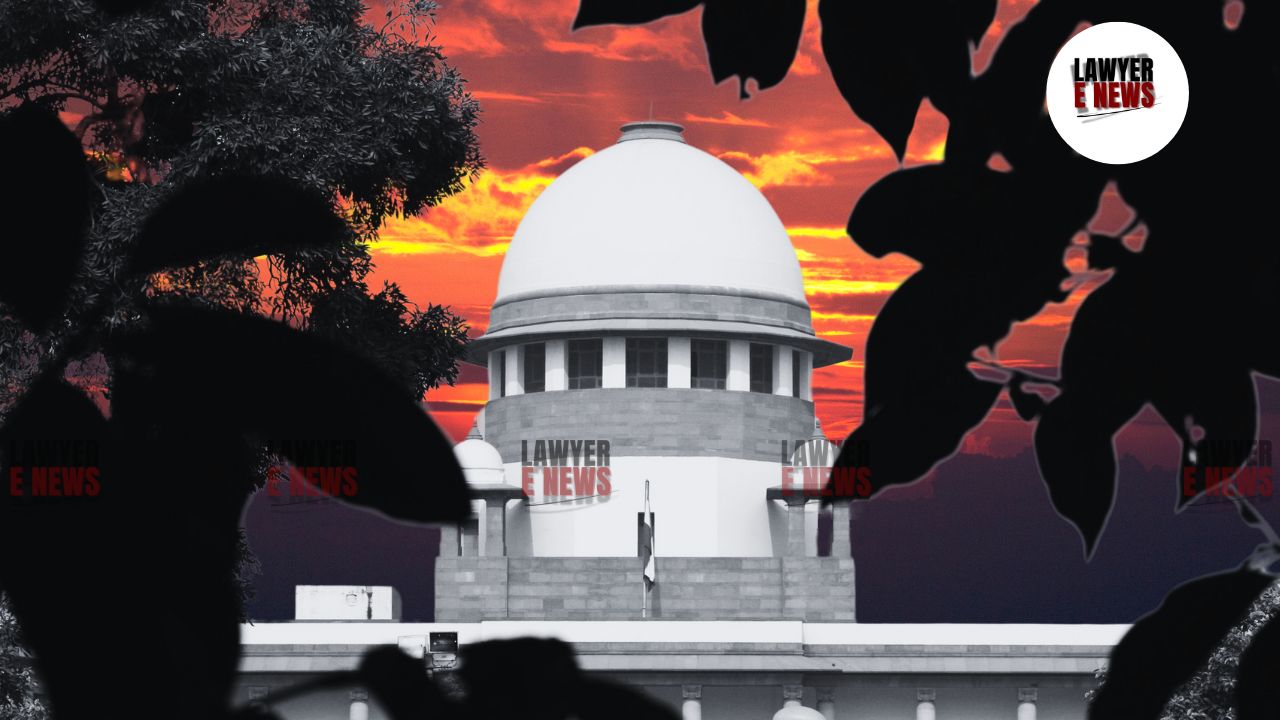-
by Admin
15 February 2026 2:36 AM



Supreme Court Reaffirms Judicial Restraint in Arbitration; High Court’s Direction for Further Cross-Examination Quashed and reaffirmed the principle of minimal judicial interference in arbitration proceedings, setting aside a High Court order directing further cross-examination of a witness despite the Arbitral Tribunal’s refusal. A Bench comprising Justice Pamidighantam Sri Narasimha and Justice Manoj Misra emphasized that arbitral tribunals must be allowed to conduct proceedings independently, and courts should intervene under Article 227 of the Constitution only in cases of "clear perversity" or "bad faith."
The judgment clarified that unwarranted interference disrupts the efficiency of the arbitration process and breaches the legislative intent behind the Arbitration and Conciliation Act, 1996.
The dispute arose out of a Client Service Agreement between Serosoft Solutions Pvt. Ltd., a startup providing educational software, and Dexter Capital Advisors Pvt. Ltd., a financial advisory firm. The respondent (Dexter Capital Advisors) invoked arbitration, alleging non-payment of fees by Serosoft Solutions for advisory services.
The arbitral proceedings, initiated following a Section 11 application in May 2023, involved the production of witnesses by both sides. Cross-examination of the appellant's witness (RW-1) commenced in December 2023 but was delayed multiple times due to procedural inefficiencies and repeated adjournments sought by the respondent. Over the course of the proceedings, RW-1 was cross-examined for a total of 12 hours across multiple sessions. Despite this, the respondent sought additional time to continue cross-examining RW-1, which the Arbitral Tribunal rejected, citing procedural fairness and the imminent expiry of its extended mandate under Section 29A of the Arbitration Act.
Aggrieved by the Tribunal’s decision, the respondent approached the High Court under Article 227, which directed the Tribunal to allow further cross-examination of RW-1, citing the importance of the cross-examination process. This order was challenged by the appellant before the Supreme Court.
The Supreme Court criticized the High Court’s decision, emphasizing that the Tribunal had already provided ample opportunity for cross-examination and that the respondent’s repeated adjournments reflected a lack of diligence. The Court highlighted several key principles governing judicial interference in arbitral proceedings:
Judicial Restraint and Minimal Interference: The Court reaffirmed that arbitral proceedings must adhere to the principle of minimal judicial interference under the Arbitration and Conciliation Act, 1996. The Act provides a comprehensive framework for conducting arbitration, and courts are required to respect the independence of arbitral tribunals.
“Excessive judicial interference in the arbitral process is not encouraged. Courts must refrain from interdicting arbitral proceedings unless there is a glaring case of perversity or bad faith.”
Ample Opportunity for Cross-Examination: The Court found that RW-1 had already been cross-examined for over 12 hours across multiple sessions and that the Tribunal had accommodated the respondent’s requests for additional time. The respondent's plea for further cross-examination was deemed excessive and unwarranted.
“The record shows that the Arbitral Tribunal provided full and sufficient opportunity for the respondent to cross-examine RW-1. The respondent’s conduct reflects a lack of preparedness and an attempt to prolong the proceedings unnecessarily.”
High Court’s Role under Article 227: The Court criticized the High Court for exceeding its supervisory jurisdiction under Article 227, noting that judicial interference is permissible only in cases of clear procedural perversity or denial of justice.
“The High Court ought to have recognized that arbitral tribunals operate under strict timelines and procedural constraints. Its interference has undermined the efficiency and independence of the arbitral process.”
Adherence to Procedural Timelines: The Court observed that the extended mandate of the Tribunal under Section 29A of the Arbitration Act was set to expire, making it essential for the proceedings to be concluded expeditiously. Granting further time for cross-examination would have disrupted the Tribunal’s ability to meet these deadlines.
The Supreme Court allowed the appeals and set aside the High Court’s order directing further cross-examination of RW-1. It held that the Tribunal’s decision to deny additional time for cross-examination was fair, reasonable, and in accordance with procedural fairness under Section 18 of the Arbitration Act.
The Court directed the Arbitral Tribunal to resume proceedings and conclude them expeditiously, in line with the extended timelines under Section 29A.
This ruling reinforces the principle of judicial restraint in arbitration, ensuring that courts do not interfere unnecessarily with arbitral proceedings. By upholding the autonomy of arbitral tribunals, the Supreme Court has reaffirmed its commitment to the legislative intent of the Arbitration and Conciliation Act, 1996, which seeks to promote efficient and expeditious dispute resolution.
The judgment also underscores the need for parties to exercise diligence and fairness during arbitral proceedings, cautioning against tactics that unnecessarily delay the process. It clarifies that while procedural fairness must be upheld, excessive demands for cross-examination or other procedural accommodations cannot be entertained at the cost of the arbitration's efficiency.
Date of Decision: January 3, 2025
